Mountain hiking and trekking is so much fun, and quite the workout. It may seem like a daunting activity if you have never done it before, but don’t let that stop you. If you are not a particularly active or athletic person, trekking in the mountains for the first time is definitely going to be a challenge. If you don’t want to crash and burn halfway, start working on your strength and stamina before the trip. Mountain treks are rejuvenating in many ways; the gorgeous sights and treacherous heights will stimulate all your senses and make you feel alive like never before.
Follow these ten tips to make the best of your first mountain trek:
Start Training Now
It’s never too late to start training; half an hour of cardio workout every morning is a good start. Trekking is very different from gym training, which is why participating in some outdoor sports is recommended. Running, jogging, cycling, and about a hundred jumping jacks a day will improve your cardio fast. Since cardio increases lung capacity and strengthens the heart, you won’t feel out of breath up in the mountains.
Train with a Backpack
While you’re on the trek, you will need to carry a number of essentials with you and for that you need a backpack. You should keep your hands free, which is why handbags are a big ‘no’. Even though backpacks are convenient for hikes and treks, they do add to the weight you are carrying. If you train ahead while wearing a loaded backpack, it won’t bother you in the least on the actual journey.
Take the Slow and Steady approach
Everyone is full of zest at the beginning of the trek, so they strive to the point of exhaustion. As a result, many trekkers are entirely drained by the time they have barely made it halfway. It is crucial to save your energy for the long haul; going slow and steady will help conserve your strength for longer.
Don’t forget to pack some extra fuel
Fueling up is important before the trek, but you also need a couple of snacks to refill along the way. Eating food rich in proteins and fats is a bad idea before and during the hike, as they can make you feel too full to function. Easily digestible carbohydrates are recommended, since they are packed with energy that is quickly assimilated. Consuming about a hundred calories every hour will keep you in great form.
Stay Hydrated
Dehydration is the main cause of fatigue among trekkers. Always pack an extra bottle of water that should be consumed in small sips after short intervals.
Remember Sun Protection
Sunglasses and sunscreen lotion are must-haves for a trek in the mountains. Even when the weather is cold, you shall be exposed to harmful UV rays of the sun. It is always wise to check the weather forecast before planning the trek. Never go in extreme weather and postpone the trip if there is a chance of rainfall.
Get the Right Shoes
Invest in a pair of good trekking shoes if you hate sore feet and blisters. Choose a pair that has a thick, soft, and flexible sole to provide maximum protection from rocky surfaces. Get a shoe that provides good traction and breath ability to your feet. Pair the shoes with crew-length socks made from wool; do not wear your common cotton socks.
Dress to Trek
Avoid wearing natural fibers like cotton on the trek, as they are prone to dampness and will cause discomfort. Choose synthetic and stretchable fabrics, as well as go for articles that can be layered. Temperature and wind can fluctuate at different points and heights, so you should be able to shed or add layers accordingly.
Pack light, but don’t leave out the essentials
You don’t want to feel burdened by your backpack, so pack as light as possible. However, it is important to keep the essentials, such as a flashlight in case it gets dark and your phone battery dies, and a mini first-aid kit to treat scratches/bruises.
Go Green
Be an exemplary tourist by keeping the natural environment clean. Do not litter on the tracks or cause any kind of damage to the mountain habitat. Do not hunt/scare the wildlife or trample indigenous plant species.
Author Bio
John Adams is a paralegal and environmentalist, who loves to travel, read, and write. His blogs are mainly focused on personal injury law and sustainable living. He believes that each and every one of us can improve the quality of our lives by incorporating positive thoughts and actions.


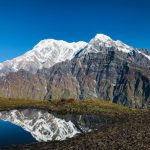 Saturday, August 30th, 2025
Saturday, August 30th, 2025
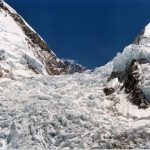 Wednesday, August 27th, 2025
Wednesday, August 27th, 2025
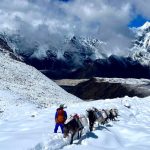 Wednesday, August 20th, 2025
Wednesday, August 20th, 2025
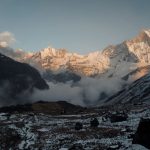 Wednesday, August 20th, 2025
Wednesday, August 20th, 2025
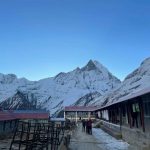 Wednesday, August 13th, 2025
Wednesday, August 13th, 2025
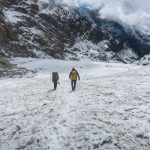 Wednesday, August 6th, 2025
Wednesday, August 6th, 2025
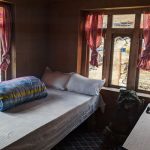 Monday, July 7th, 2025
Monday, July 7th, 2025
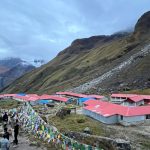 Thursday, July 17th, 2025
Thursday, July 17th, 2025
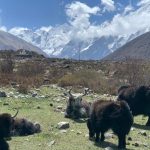 Monday, July 7th, 2025
Monday, July 7th, 2025
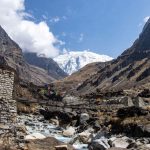 Friday, May 9th, 2025
Friday, May 9th, 2025
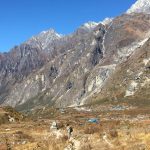 Saturday, June 14th, 2025
Saturday, June 14th, 2025
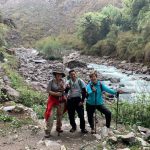 Wednesday, June 25th, 2025
Wednesday, June 25th, 2025
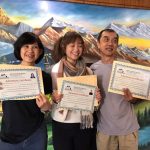 Tuesday, August 5th, 2025
Tuesday, August 5th, 2025
